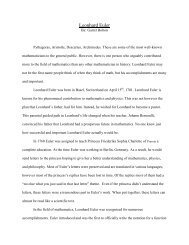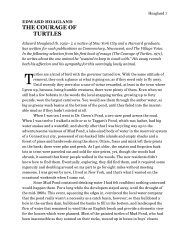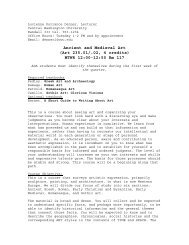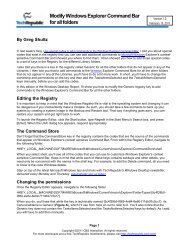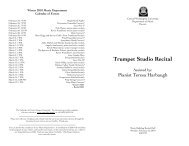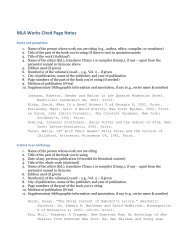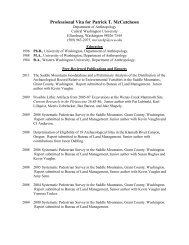The Ingenious Gentleman Don Quixote de la Mancha
The Ingenious Gentleman Don Quixote de la Mancha
The Ingenious Gentleman Don Quixote de la Mancha
You also want an ePaper? Increase the reach of your titles
YUMPU automatically turns print PDFs into web optimized ePapers that Google loves.
<strong>Don</strong> <strong>Quixote</strong> <strong>de</strong> <strong>la</strong> <strong>Mancha</strong> 79 <br />
<br />
"Sir," answered <strong>Don</strong> <strong>Quixote</strong>, "that cannot be on any account omitted, and the <br />
knight‐errant would be disgraced who acted otherwise: for it is usual and customary <br />
in knight‐errantry that the knight‐errant, who on engaging in any great feat of arms <br />
has his <strong>la</strong>dy before him, should turn his eyes towards her softly and lovingly, as <br />
though with them entreating her to favor and protect him in the hazardous venture <br />
he is about to un<strong>de</strong>rtake, and even though no one hear him, he is bound to say <br />
certain words between his teeth, commending himself to her with all his heart, and <br />
of this we have innumerable instances in the histories. Nor is it to be supposed from <br />
this that they are to omit commending themselves to God, for there will be time and <br />
opportunity for doing so while they are engaged in their task." <br />
<br />
"For all that," answered the traveler, "I feel some doubt still, because often I have <br />
read how words will arise between two knights‐errant, and from one thing to <br />
another it comes about that their anger kindles and they wheel their horses round <br />
and take a good stretch of field, and then without any more ado at the top of their <br />
speed they come to the charge, and in mid‐career they are wont to commend <br />
themselves to their <strong>la</strong>dies; and what commonly comes of the encounter is that one <br />
falls over the haunches of his horse pierced through and through by his antagonist's <br />
<strong>la</strong>nce, and as for the other, it is only by holding on to the mane of his horse that he <br />
can help falling to the ground; but I know not how the <strong>de</strong>ad man had time to <br />
commend himself to God in the course of such rapid work as this; it would have <br />
been better if those words which he spent in commending himself to his <strong>la</strong>dy in the <br />
midst of his career had been <strong>de</strong>voted to his duty and obligation as a Christian. <br />
Moreover, it is my belief that all knights‐errant have not <strong>la</strong>dies to commend <br />
themselves to, for they are not all in love." <br />
<br />
"That is impossible," said <strong>Don</strong> <strong>Quixote</strong>: "I say it is impossible that there could be a <br />
knight‐errant without a <strong>la</strong>dy, because to such it is as natural and proper to be in love <br />
as to the heavens to have stars: most certainly no history has been seen in which <br />
there is to be found a knight‐errant without an amour, and for the simple reason <br />
that without one he would be held no legitimate knight but a bastard, and one who







